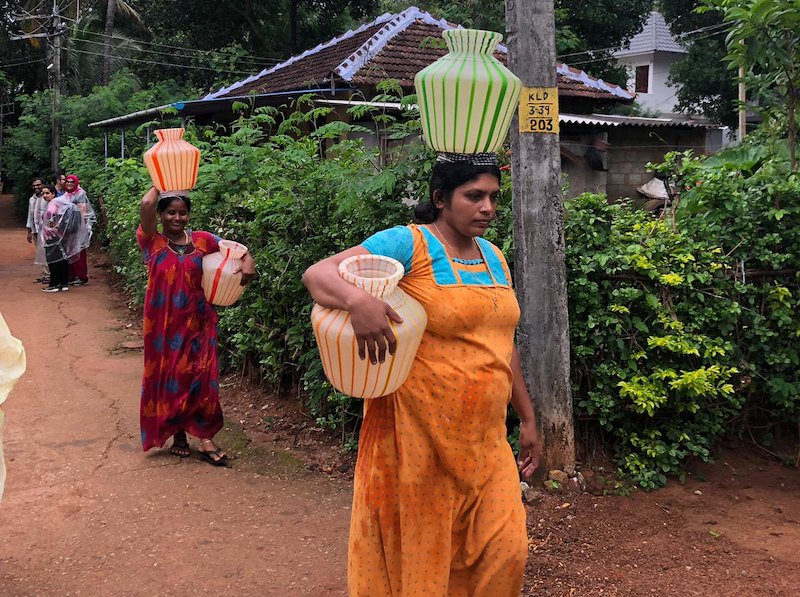Becoming ‘water-wise’

Students from the Faculty of Community Services travelled to rural communities in Kerala, India as part of a ‘Live-in-Labs’ experiential learning program. Photo: Zaynab Dhalla
According to the United Nations, over 75 million people in India lack access to safe drinking water. (external link, opens in new window) With the onset of climate change, water availability is becoming less predictable (external link, opens in new window) in many places.
To ensure that everyone has equitable access to water, cities and communities around the world need to embrace more sustainable water practices – and research by students in the Faculty of Community Services (FCS) is adding to the knowledge base.
In August, seven students from FCS travelled to Kerala, India and partnered with students and faculty from Amrita University (external link, opens in new window) to examine water use in rural communities. As part of a ‘Live-in-Labs’ experiential learning program, project teams of students, faculty, and staff consulted with community members to conceptualize sustainable water practices and make recommendations for change.
Building off of ‘water-wise’ principles (external link, opens in new window) designed for cities, students explored whether a similar set of practices can be adapted for rural communities.
“It was an opportunity to conceptualize and create a research project from the start,” says Nadia Bello, interim manager, operations and experiential learning, FCS, who accompanied students on the trip.
“Our purpose was to create a definition of what a ‘water-wise’ community is,” says Zaynab Dhalla, a student in the social work program. “We were able to paint a picture of the community and what their needs are.”
Last year, a cohort of FCS students travelled to Kerala and – despite experiencing the worst flooding to hit the region in 100 years – built two water filtration systems in rural communities, as part of the larger Jivamritam Purified Clean Drinking Water Initiative (external link, opens in new window) .
“Last year’s group was actually providing the drinking water by building filtration systems,” says Bello. “This year, the idea was, how do we create the circumstances in which there is education, awareness, and understanding around how important water is, what’s needed, and what, in fact, the community thinks clean drinking water looks like?”
“We’d ask [the community] things like, ‘what are the barriers to accessing water?’ or ‘how can you tell that your water is safe?’" says Dhalla. “In one village we found huge disparities between people who are more on the wealthier side and people who aren’t as wealthy.”
Community involvement and consultation were integral to the research project. “They shared very deep stories with us,” says Dhalla, of community members. “Their lives have been very affected by water, in a state where monsoons are normal and there are a lot of water-borne diseases.”
Students came from different programs in FCS and worked across disciplines to foster a deeper understanding of water-related issues. “The nature of the project was truly interdisciplinary,” says Leaura Hunt, a student in the nutrition and food program. “I learned so much from the social work students and from the nursing students.”
“There are a lot of politics around clean water,” says Bello. “There are things that are really important to Indian community life, that some of us would never even think about. For example, water for cleansing for spiritual reasons is actually really important in a lot of these homes.”
“Even as small a project as the one our students started really helps add to the cumulative knowledge about water and sustainable water practices,” she continues. “Students were able to see that their contributions will have a big impact down the road.” The last week of the project coincided with World Water Week (external link, opens in new window) .
“Now seeing how important community development is – and what it actually looks like – made such a big difference to me,” says Dhalla. “That’s something I can take away – turning thought into action.”
This group makes up the fifth cohort of FCS students to travel to rural communities in Kerala, India and engage in experiential learning opportunities alongside Amrita University. Plans are underway for another group of FCS students to return to Kerala next year.